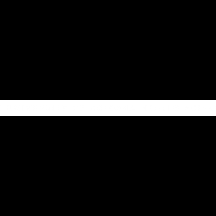Professor, Pharmacology and Toxicology
Professor, Cancer Biology
Director, Graduate Studies
Professor, Cancer Biology
Director, Graduate Studies
Professorship, R Ken and Donna Coit
Education:
- Technical University of Berlin, Germany, 1997 (Ph.D., biotechnology)
Major Areas of Research Interest:
Redox Drug Discovery Targeting Human Skin Cancer
My drug discovery research program examines the pathological role of reactive oxygen ('ROS') and reactive carbonyl species ('RCS') in skin carcinogenesis and aims at targeting these reactive intermediates using novel reactivity-based therapeutics for photo-chemoprevention and cancer chemotherapy. In contrast to structure-based approaches that target macromolecules by selective ligands, reactivity-based drug discovery uses chemical reactants such as small molecule catalytic antioxidants, redox cyclers, and carbonyl scavengers as therapeutics that target reactive chemical species involved in human pathology. Three synergistic research projects are currently pursued in the Wondrak laboratory:
I. Targeting Metabolic Control of Melanoma Cell Survival.
We are currently testing the hypothesis that the glycolytic control of melanoma cell survival is mediated by methylglyoxal (MG)-adducted heat shock protein 27 ('MG-Hsp27'), a novel therapeutic target amenable to small molecule modulation by specific MG-antagonists ['carbonyl scavengers'].
We are currently testing the hypothesis that the glycolytic control of melanoma cell survival is mediated by methylglyoxal (MG)-adducted heat shock protein 27 ('MG-Hsp27'), a novel therapeutic target amenable to small molecule modulation by specific MG-antagonists ['carbonyl scavengers'].
II. Targeting the Redox Achilles Heel of Melanoma.
We are aiming at drug discovery and target identification of experimental redox chemotherapeutics with anti-melanoma activity in vitro and in vivo ['prooxidant redox modulators'].
We are aiming at drug discovery and target identification of experimental redox chemotherapeutics with anti-melanoma activity in vitro and in vivo ['prooxidant redox modulators'].
III. SPA-Inducers for Photo-chemoprevention of Skin Cancer.
We are aiming at the design of small molecule biological response inducers as pharmocological activators of the innate skin photo- adaptive response ('SPA'). ['Nrf2 activators' and 'heat shock response inducers'].
We are aiming at the design of small molecule biological response inducers as pharmocological activators of the innate skin photo- adaptive response ('SPA'). ['Nrf2 activators' and 'heat shock response inducers'].
Selected Publications:
'Redox-directed Cancer Therapeutics: Molecular Mechanisms and Opportunities.' Wondrak GT. Antioxid Redox Signal. 2009 Jun 4. [Epub ahead of print]
'Antimelanoma activity of the redox dye DCPIP (2,6-
dichlorophenolindophenol) is antagonized by NQO1.' Cabello CM, Bair WB 3rd, Bause AS, Wondrak GT. Biochem Pharmacol. 2009 Aug 15;78(4):
344-54.
dichlorophenolindophenol) is antagonized by NQO1.' Cabello CM, Bair WB 3rd, Bause AS, Wondrak GT. Biochem Pharmacol. 2009 Aug 15;78(4):
344-54.
'The experimental chemotherapeutic N6-furfuryladenosine (kinetin-
riboside) induces rapid ATP depletion, genotoxic stress, and CDKN1A
(p21) upregulation in human cancer cell lines.' Cabello CM, Bair WB 3rd, Ley S, Lamore SD, Azimian S, Wondrak GT. Biochem Pharmacol. 2009 Apr 1;77(7):1125-38.
riboside) induces rapid ATP depletion, genotoxic stress, and CDKN1A
(p21) upregulation in human cancer cell lines.' Cabello CM, Bair WB 3rd, Ley S, Lamore SD, Azimian S, Wondrak GT. Biochem Pharmacol. 2009 Apr 1;77(7):1125-38.
'The cinnamon-derived Michael acceptor cinnamic aldehyde impairs melanoma cell proliferation, invasiveness, and tumor growth.' Cabello CM, Bair WB 3rd, Lamore SD, Ley S, Bause AS, Azimian S, Wondrak GT.
Free Radic Biol Med. 2009 Jan 15;46(2):220-31.
Free Radic Biol Med. 2009 Jan 15;46(2):220-31.
'Cinnamoyl-based Nrf2-activators targeting human skin cell photo- oxidative stress.' Wondrak GT, Cabello CM, Villeneuve NF, Zhang S, Ley S, Li Y, Sun Z, Zhang DD. Free Radic Biol Med. 2008 Aug 15;45(4):
385-95. Epub 2008 Apr 26.
385-95. Epub 2008 Apr 26.
'Reactivity-based drug discovery using vitamin B(6)-derived pharmacophores.' Wondrak GT. Mini Rev Med Chem. 2008 May;8(5):519-28.
Review.
Review.
'Experimental therapeutics: targeting the redox Achilles heel of cancer.' Cabello CM, Bair WB 3rd, Wondrak GT. Curr Opin Investig Drugs. 2007 Dec;8(12):1022-37. Review.
"NQO1-activated phenothiazinium redox cyclers for the targeted bioreductive induction of cancer cell apoptosis.' Wondrak GT. Free Radic Biol Med. 2007 Jul 15;43(2):178-90.
'Let the sun shine in: mechanisms and potential for therapeutics in skin photodamage.' Wondrak GT. Curr Opin Investig Drugs. 2007 May;8 (5):390-400. Review.
'Endogenous UVA-photosensitizers: mediators of skin photodamage and novel targets for skin photoprotection.' Wondrak GT, Jacobson MK, Jacobson EL. Photochem Photobiol Sci. 2006 Feb;5(2):215-37. Review.
'Antimelanoma activity of apoptogenic carbonyl scavengers.' Wondrak GT, Jacobson MK, Jacobson EL. J Pharmacol Exp Ther. 2006 Feb;316(2):
805-14.
805-14.
Sponsored Research Through MSRP:
Andrea Krajisnik, (MSRP 2016): "Exploring Melanoma and Nonmelanoma Skin Cancer-Directed Cytotoxic Activity of the Dietary Apocarotenoid Bixin"
Advanced Research Distinction Track (RDT):
Mohammad Fazel (RDT Class of 2018): "Identification of Redox-active Small Experimental Therapeutics That Cause Oxidative Protein and Dna Damage in Malignant Melanoma Cells"
Andrea Krajisnik (RDT Class of 2019): "Artemisinin-Based Redox Intervention Targeting Malignant Melanoma"
Friday, March 9, 2018

